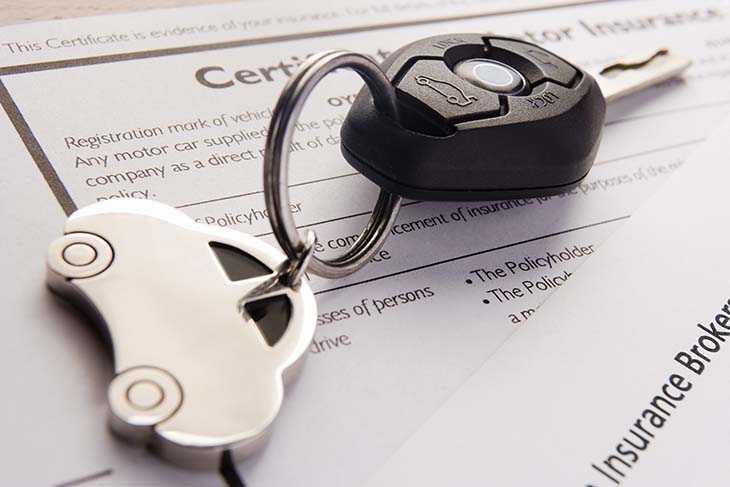Car finance is one of the best ways to fund the purchase of a new car.
By spreading the cost across manageable Monthly Payments, you can get behind the wheel of a much nicer car than you might have been able to afford in one payment of a lump sum.
But car finance can also seem confusing, especially to those who are unfamiliar with finance packages in general.
One of the most commonly asked questions is ‘Who is the legal owner of a car on finance?’.
In this article, we take a look at this question in detail and hope to provide the answers to the questions you may have about car ownership on a finance agreement.
Legal ownership
When you purchase a car on finance, you will receive all the documents related to the vehicle in question. This will include the car’s V5 registration document, which will have your name and address on it as the vehicle’s registered keeper.
However, this does not mean that you have ownership of the vehicle. The registered keeper should be the name of the person who has the most use of the car on a daily basis.
This will be used should the car be involved in an accident of some kind, or if they were to accrue a traffic offence such as a speeding fine or a parking ticket.
However, you are not the owner of the car. The finance provider is.
The finance company own the car until the final payment

When you take out a finance package, you are effectively renting or leasing the car until the final payment has been paid.
So it doesn’t matter if you have made 10% of the payments or 90% of the payments, until the final payment has been made and all the money owed to the finance company has been settled, the car belongs to the finance provider.
It used to be that a lot of finance providers would have the V5 in their company’s name. This is starting to change, thanks to the huge popularity of car finance deals.
However, don’t think you can trick someone by selling them a car with finance outstanding. A quick HPI Check will reveal that the car has been financed and whether or not the payments have been settled.
Hire purchase and lease purchase finance deals
One of the most common types of car finance options is Hire Purchase (HP).
In this package, the total cost of the car finance is spread across the payment plan, so when you reach the end, all the costs will have been paid off and you now own the car.
The finance provider will be the legal owner until the end of the agreement. Lease Purchase works in a similar manner, however you are not obligated to purchase the car at the end of the agreement.
Instead you will have an option to pay a lump sum and complete the deal. Legal ownership, therefore, remains with the finance provider until you have made a decision and paid any final payments.
What about a PCP deal?
Personal Contract Purchase (PCP) can be a little more confusing, thanks to the three options you have available at the end of the agreement.
When your PCP package comes to the end of its term, you have three options:
1) return the car to the lender
2) pay a one-off payment to own the car, or
3) refinance the car against a new car finance deal with a new car
In all three instances, legal ownership remains with the car finance company until the final payment has been settled. Again, you are effectively hiring the car for the length of the agreement.
This is why many providers will have condition agreements and Annual Mileage Limits in place, as they want to preserve the value of the car should you decide against buying the car outright at the end.
Do I still need car insurance?

There were some issues with car insurance companies being unwilling to protect a car on a PCP payment plan. This was back when PCP was not as widely available or popular, and insurance companies were reluctant to insure someone to drive what was effectively a hire car.
However, times have changed and now there are many car insurance providers who will treat you no differently to a normal driver.
The insurance company will however require details of your finance provider, so be sure to keep your finance details handy when making an application or renewing your insurance policy.
What if I am financing a car for someone else?
It is not permitted to finance a car for someone else, as this is called Fronting. The finance company will want to provide a car based on the driver’s details, not someone else who will not use the car.
Not only is it illegal, it’s also a practice that can lead to a lot of expensive problems for you down the line. If you want to help someone get car finance, they will need to apply for a Guarantor Loan, and use you as the guarantor.
Even so, in this case legal ownership of the car will belong to the car finance provider, not you nor the registered keeper.
Car finance needn’t be complicated
Car finance can be a simple process, provided you take the time to look at the details. You should never be afraid to ask questions.
When you apply for car finance at Creditplus, you'll be assigned one of our friendly customer consultants to guide you through the process to you and answer any queries.
To discuss your finance options with a customer consultant, apply online today.





 Facebook
Facebook Twitter
Twitter Instagram
Instagram LinkedIn
LinkedIn Youtube
Youtube